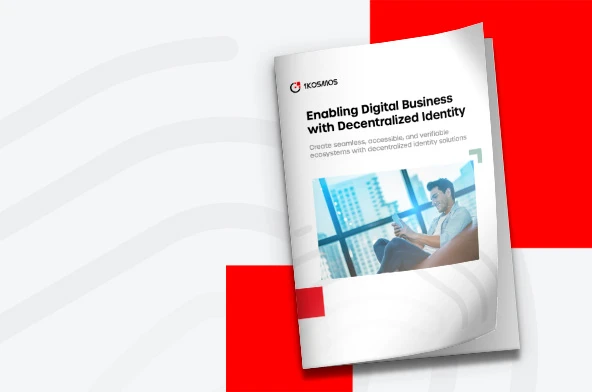CTO Insights (IDentifier February 2020)
The Anatomy of The Chain (Pt. 4 of 4)
Congratulations on making it to the fourth and final leg of the journey we started in September. Given the magnitude of effect blockchain is having and will have on our lives, I think you will agree the effort required to stretch our minds to understand this concept is warranted. If you are just now joining the group, I recommend you acquaint yourself with the first three installments. Here are links for your convenience: Installment One | Installment Two | Installment Three.
In our previous considerations, we explored the attributes and capabilities native to generic blockchain implementations at micro and macro levels. Now I want to introduce you to some of the ways 1Kosmos leverages and adapts blockchain technology to deliver superior information access management (IAM) solutions.
Public vs Private Blockchains
Up to this point, we have used generic blockchain architecture (ex. Bitcoin) as our point of reference. While 1Kosmos retains much of the underlying structure and capabilities of publicly-available blockchains, the structures we design and implement for our clients are deployed on private networks.
The data stored in these private systems retains the transparency and immutability of generic blockchain architecture but encloses it within a dedicated network. In most instances, we deploy and manage the server network in which our client’s blockchains are implemented but we also design and install server networks that our client’s manage themselves.
Cryptographic Efficiency
One of the problems the creators of the first public blockchains encountered was the increasing amount of time required to create new blocks. Because the blocks build on each other, each new block requires a more complicated cryptographic process to encrypt and validate it than the previous block. Over time, this meant that the duration and computing resources needed to create blocks became impractical for commercial applications where speed was a non-negotiable.
To solve this problem, a new form of block creation was developed. We call this new process “proof of stake.” I explained this concept in an earlier post but the main point is that this approach retains blockchain’s cryptographic strength but dramatically reduces the computing power and time necessary to achieve that strength. In fact, most of our implementations require two to three servers that are able to process transactions in seconds rather than the minutes, hours and days common to public blockchain transactions.
Programming Towards a Principle
We build our IAM systems on a blockchain architecture because it offers a superior method of data storage and retrieval. But possibly more important than its abilities to securely store data is blockchain’s ability to enable the user to control her or his personal information (ex. government-issued identification documents, biometrics, etc.)
Our motivation to move in the direction of user privacy is not solely based on the need to comply with new regulations like GPDR. If the lessons of the early Information Age have taught us anything it is that power always moves in the direction of the consumer … whether that consumer be one of our client’s customers or one of client’s employees or contractors.
That is why 1Kosmos implementations typically include a dual blockchain architecture where user identity credentials are stored in one blockchain and a “contract” that contains the location addresses of those credentials is stored in another blockchain. By compartmentalizing each user’s data across two blockchains and the securing them with a private key stored on the user’s smart device, the possibility of a user’s data being compromised is zero.
In Summary
I believe blockchain represents an order of magnitude improvement in how we engage with each other personally and commercially in the digital domain. If there were a better option, I would be its foremost champion! I hope this series helps you not only appreciate my enthusiasm for this evolutionary technology but make it your own. Should you have any questions, I would be happy to try to answer them. Just drop me a line at AskRohan@1kosmos.com.
